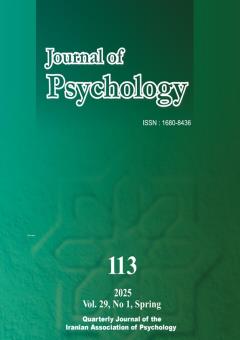The Relationship Between Virtual Space Usage and Aggression, Achievement Motivation, and Academic Performance (Case Study: Male Middle School Students in Ahvaz)
Subject Areas : روانشناسیNaval Minavi 1 , Anita Homayounnia 2
1 - Department of General Psychology, Payam Noor University, Tehran, Iran.
2 - Department of Educational Sciences, Payam Nour University, Tehran, Iran
Keywords: Virtual Space, Aggression, Achievement Motivation, Academic Performance, Ahvaz,
Abstract :
This study aimed to investigate the effect of virtual space usage on aggression, achievement motivation, and academic performance among male middle school students in Ahvaz. Data were collected using standardized tools, including the Virtual Space Scale (Young, 1999) with 20 items, the Aggression Scale (Buss & Perry, 1992) with 29 items, the Achievement Motivation Scale (McInerney, 2001) with 43 items, and an academic performance measure. The reliability of these instruments was assessed using Cronbach's alpha coefficients, which were calculated as 0.95, 0.89, and a range of 0.67 to 0.82 for academic motivation. Data analysis was conducted using SPSS software, version 22. The results indicated a significant positive relationship between virtual space usage and the components of aggression (p < 0.03). Specifically, increased virtual space usage was associated with a higher likelihood of aggressive behaviors among students. The greatest impact of virtual space was observed on verbal aggression (r = 0.965), while the least was on physical aggression (r = 0.749). Additionally, a significant negative relationship was found between virtual space usage and achievement motivation (p < 0.03). The most pronounced effect was on the social interest component (r = -0.841), with the smallest effect on the social power component (r = -0.543). Furthermore, a negative and significant relationship was observed between virtual space usage and academic performance (r = -0.521), indicating that increased use of virtual space correlated with lower academic performance.
